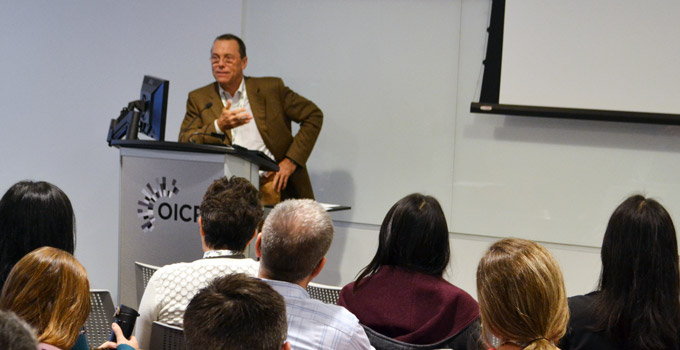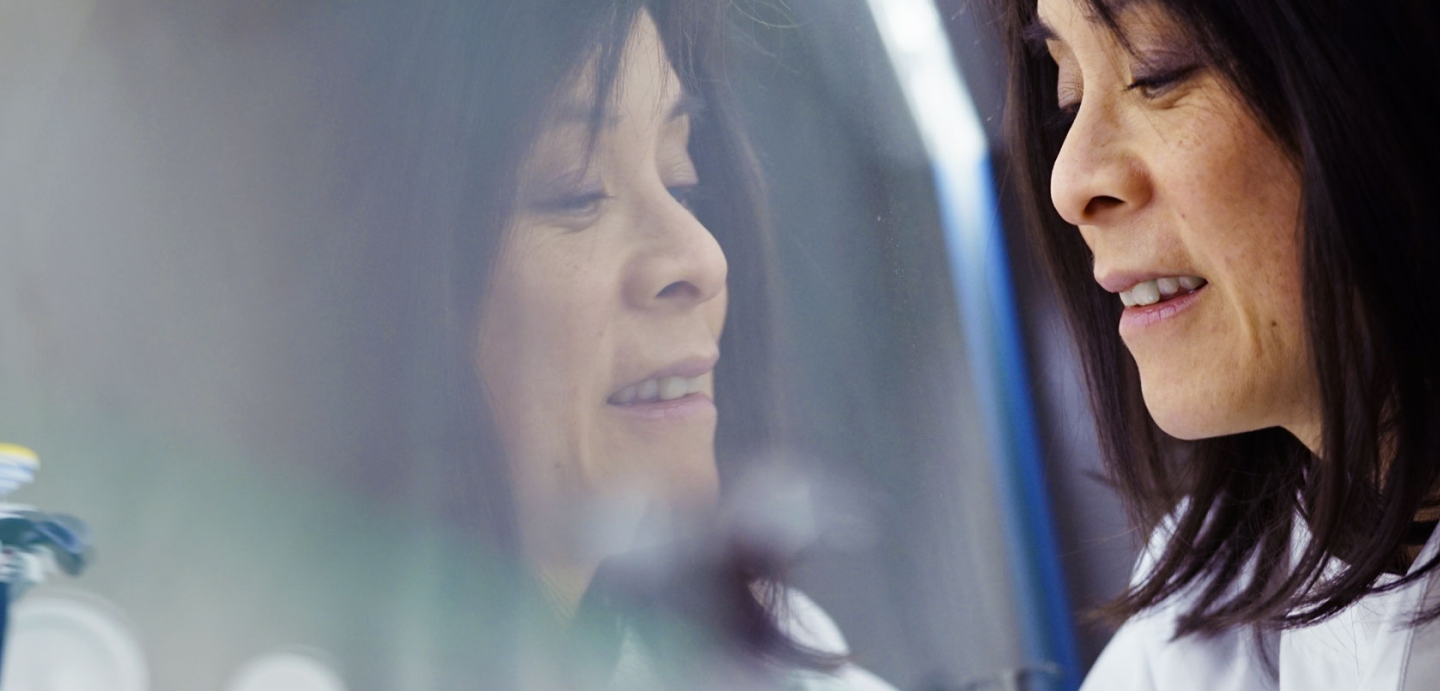This meeting sets stage for next four years of biostatistics training

As the cancer research landscape rapidly changes, so to do the needs of hospitals and research institutes for the types of young researchers on their teams. New technological advances have led to the need for qualified biostatisticians who can work with the large amounts of data that are now an essential part of many cancer research projects.
The Biostatistics Training Initiative (BTI) has been successfully addressing this problem since its launch in 2010. Twenty-two biostatistics graduate students have been trained in 23 placements at cancer centres in Ontario, including Princess Margaret Cancer Centre, the NCIC Clinical Trials Group and here at OICR.
Now the program is expanding. At its Kick Off Meeting on November 11, 2015, Drs. Greg Pond and Richard Cook, leaders of the BTI, announced that the Initiative was renewed for the next four years and would expand beyond internships to include fellowships for PhD and postdoctoral students, as well as additional ongoing training and continuing education initiatives.
Past graduates of the program spoke at the event, including Jenna Sykes, one of the first students enrolled in the program in 2010. She completed a successful internship at the Princess Margaret Cancer Centre and is now working at St. Michael’s Hospital in Toronto.
She enrolled in the program because she struggled to find a job after completing her Master’s in biostatistics, despite having excellent grades and training. But once she completed her BTI training (and was hired on at Princess Margaret), she understood why there had been so little appetite to hire a recent grad with no on-the-job experience.
“The people who rejected my resume were right, I was massively unprepared,” she says about her initial job search, before enrolling in the BTI. “In university, all the data you see is so perfect. What I realized soon after I started my internship is that real life data is never like that. It was great to get exposure to so many complex statistical designs. Explaining statistics to non-statisticians is an extremely important and difficult part of the job, and getting practice doing this in the real world and learning to ask the right questions was extremely important.”
Yonathan Brhane completed an internship at OICR and the NCIC-CTG. He came to Canada in 2010 to pursue a Master’s degree and graduated in 2011. Like Jenna, he soon found he didn’t have enough practical experience and enrolled in the BTI program in May 2011. He worked first in Paul Boutros’ lab and then moved to Kingston to do statistical analysis at the NCIC-CTG.
He said that at the start the internship had a steep learning curve. “The challenge was that I had no knowledge of genomics and cancer biology and I quickly had to pick up a lot of jargon and knowledge. I developed a strong interest and desire to learn about science and go beyond to learn more.”
His internship led to a full time job at Princess Margaret and he is now working as a biostatistician at the Lunenfeld-Tanenbaum Research Institute at Mount Sinai Hospital.
The Kick Off event also included a talk by Dr. Marc Buyse, Sc.D., Chairman and Founder of IDDI, who presented on the statistical validation of surrogate endpoints. His talk illustrated many of the difficulties encountered in the statistical validation and application of surrogate endpoints, but also the importance in doing so for the advancement of oncology research
The BTI is funded in part by OICR.

